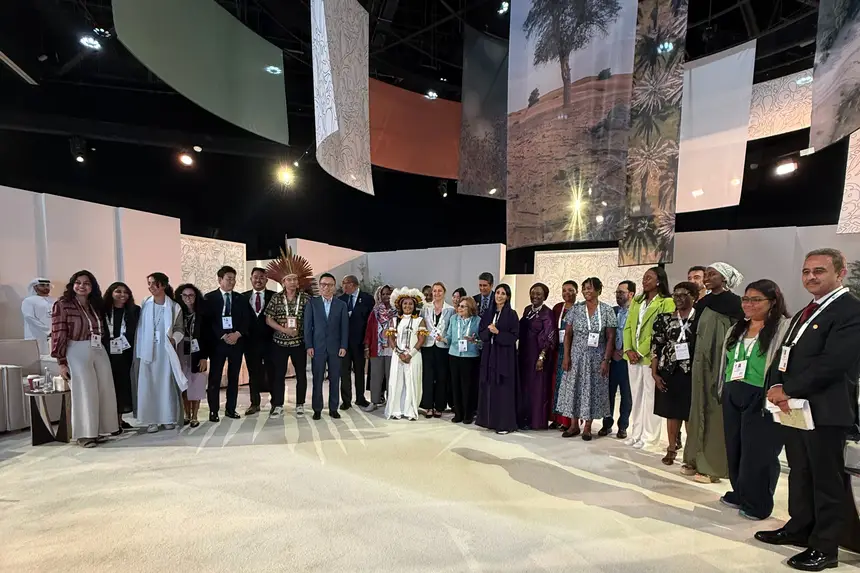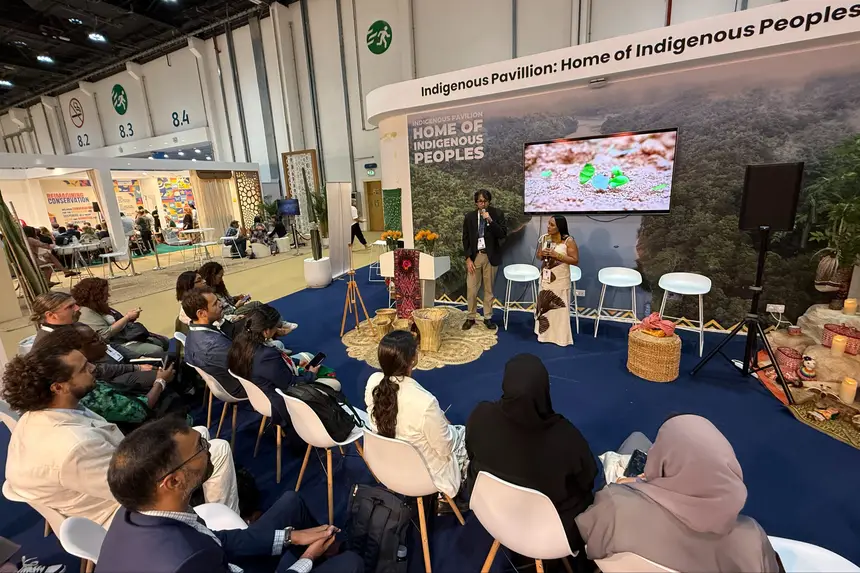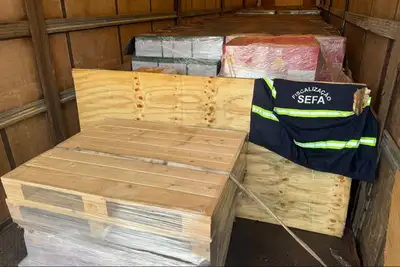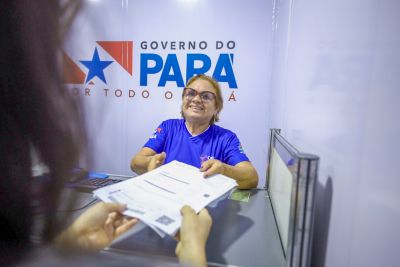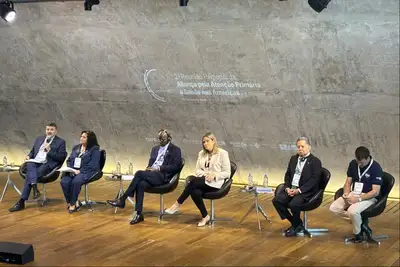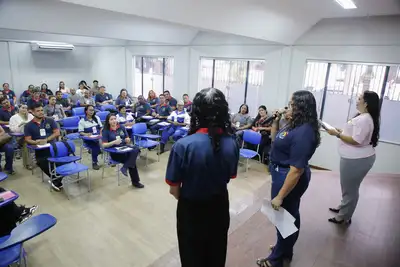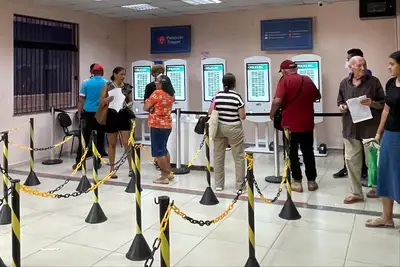From Pará to the World: Indigenous Leadership Inspires a New Route for Global Climate Governance
At an international congress in the United Arab Emirates, the State Secretariat for Indigenous Peoples represents the Government of Pará and advocates for indigenous presence in climate decision-making and financing spaces.
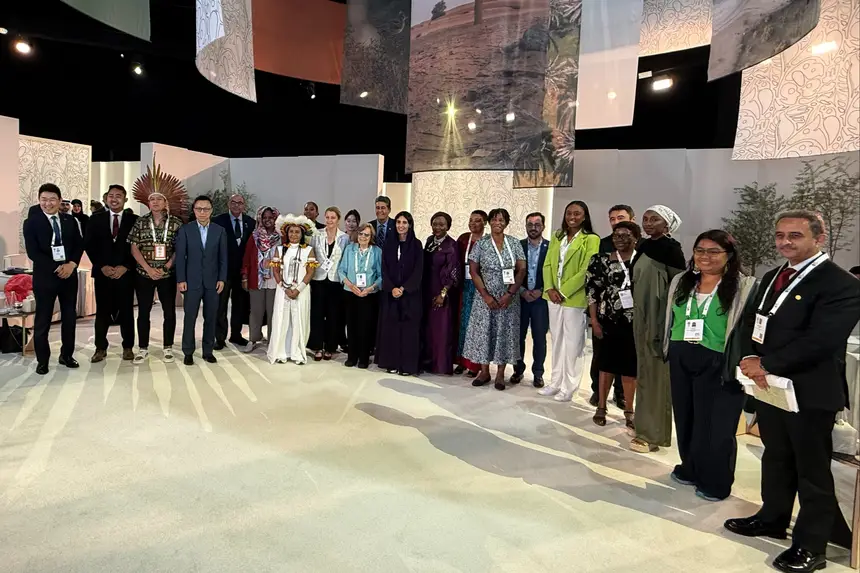
The Government of Pará, through the State Secretariat for Indigenous Peoples (Sepi), continues to enhance the prominence of the Amazon in international debates about the future of the planet. In the United Arab Emirates, Secretary Puyr Tembé represented the State on the panel "Redefining the Climate Narrative: Indigenous Leadership in Transforming Global Policy" during the IUCN World Conservation Congress in Abu Dhabi.
The event brought together leaders from different continents, experts, and representatives from international organizations to discuss how indigenous peoples can directly influence policy formulation and climate financing, going beyond symbolic representation and assuming strategic governance positions.
For Puyr Tembé, the debate marks a turning point in the recognition of indigenous political leadership as a structuring force for climate justice. "It is time to break with the logic that indigenous peoples are merely invited to participate. We need to be at the tables where decisions are made, leading, coordinating, and overseeing projects. This is what transforms presence into power and discourse into action," she emphasized.
The secretary reinforced that the inclusion of indigenous leadership at all levels of governance is the most effective way to ensure lasting and fair climate outcomes, and the government of Pará is an example of what is possible, necessary, and effective.
"We do not want to be mere figures in projects that carry our name. We want to build solutions that respect our ways of life, our spirituality, and the balance with nature. The forest is not an asset; it is our home, the space of our existence and our wisdom," she added.
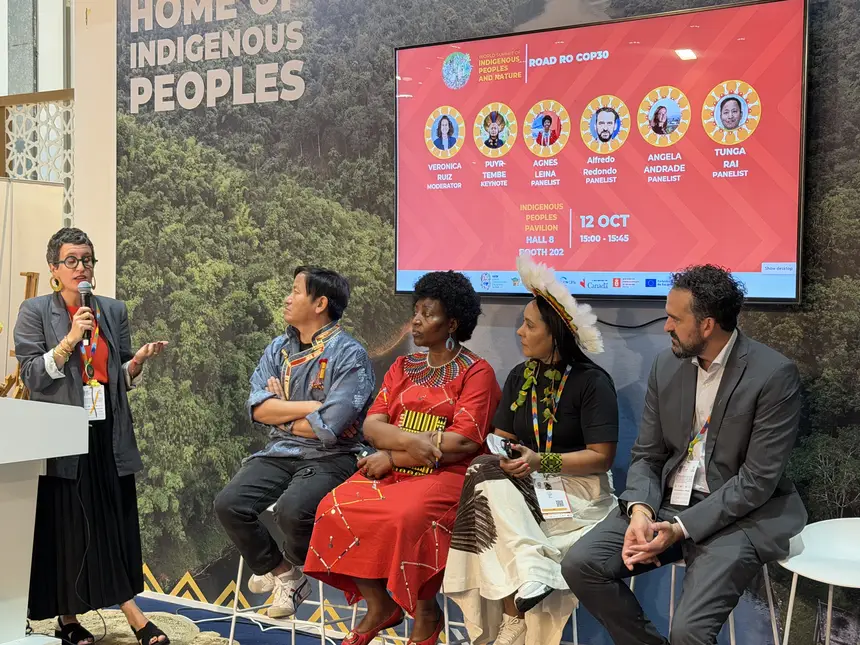
During the meeting, representatives from the UN, the International Indigenous Forum on Biodiversity (IIFB), and the IUCN highlighted Pará as an example of shared governance between the State and indigenous peoples, citing initiatives such as the Indigenous Peoples Training Caravans, led by Sepi. This action has been promoting listening, training, and dialogue across all eight ethnoregions of the State, preparing communities to actively participate in the upcoming conference of the parties in Belém in November.
Pará's participation in the IUCN World Conservation Congress reinforces the State's role as a reference in integrating public policies, traditional knowledge, and global environmental governance, positioning indigenous peoples as protagonists of the ongoing climate and social transformation.


